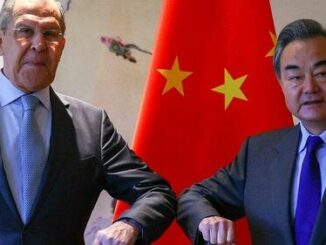
- European Union ambassadors have reached an agreement on a new package of sanctions against Russia, including a price cap.
- The political agreement on the price cap contains measures to soften the impact of the sanctions on EU member states with large shipping industries.
- The sanctions also extend import bans on goods such as steel products, wood pulp, paper, machinery and appliances, chemicals, plastic, and cigarettes.
European Union ambassadors reached an agreement on Wednesday to impose a new package of sanctions on Russia, including banning maritime transportation for Russian oil to third-party countries unless the oil is sold below or at a certain price cap.
“Ambassadors reached a political agreement on new sanctions against Russia – a strong EU response to Putin’s illegal annexation of Ukrainian territories,” the Czech rotating presidency of the EU said in a tweet today.
A written procedure now follows, and sanctions enter into force upon publication in the Official Journal, the Czech Presidency said.
The eighth package of sanctions includes “Prohibition of maritime transport of Russian oil to third countries above the oil price cap and a ban on related services.” The additional sanctions also extend import bans on goods such as steel products, wood pulp, paper, machinery and appliances, chemicals, plastic, and cigarettes. The EU is also banning the provision of IT, engineering, and legal services to Russian entities and is expanding the tech-export ban.
The political agreement on the price cap contains measures to soften the impact of the sanctions on EU member states with large shipping industries and fleets, such as Greece, Cyprus, and Malta, sources with knowledge of the matter told Bloomberg.
A sanctions package would need unanimous approval by all 27 EU member states, but Hungary has said it would block new energy sanctions against Russia.
EU leaders are set to discuss Russia’s war in Ukraine, energy, and the economic situation at a meeting in Prague on October 7.
Earlier this week, Ben Harris, Assistant Secretary for Economic Policy at the U.S. Treasury Department, said that the Treasury is looking to structure a three-phased approach to the G7 sanctions and price caps on Russian oil to keep Russian crude and products flowing, but at lower prices. The G7 group of the most industrialized nations will first target Russia’s crude oil, then move on to include diesel at a second stage. Finally, the lower-value products such as naphtha will be part of a third phase, Harris said at the Argus European Crude Conference in Geneva on Tuesday.



